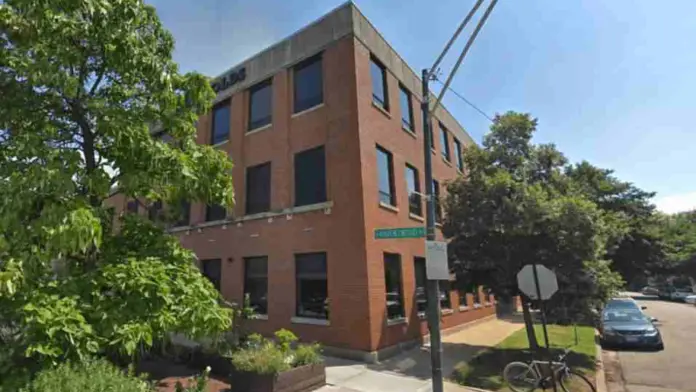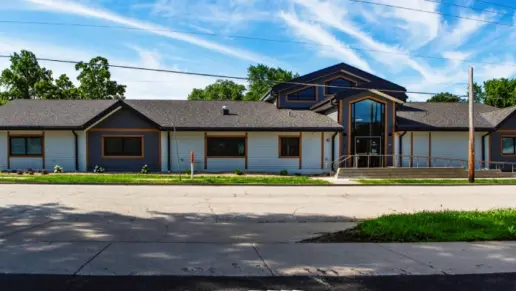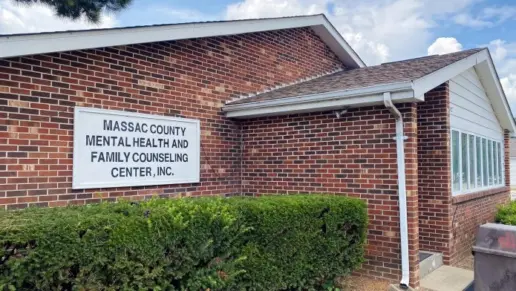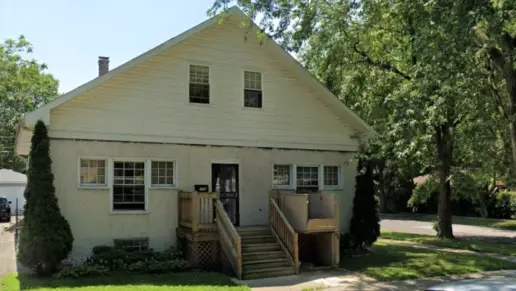About Thresholds – Ravenswood Avenue
Thresholds – Ravenswood Avenue in Chicago has an incredible number of services to meet the mental health and addiction recovery needs of youth, young adults, adults and seniors. They also have special programs for veterans and mothers of young children. Medication assisted treatment referrals, crisis intervention, and psychosocial rehabilitation are services included in care at Ravenswood. Crisis intervention and Assertive Community Support teams are available to offer mental health support 24/7.
The team at Ravenswood Center for Mental Wellbeing does their best to care for the whole person, so physical and mental health are both a priority. Assessments and screenings are performed and referrals are made to the appropriate specialists and medical professionals. Chronic disease management and care coordination help integrate services and streamline each individual’s care.
Substance abuse screening and treatment are offered along with counseling, medication management, preventative medicine and community support. Employment, housing, education, and social skills and resources help individuals and their families make long lasting positive changes in their lives.
Here, treatment is offered in two phases. An Intensive Outpatient Program is available that provides at least nine hours of services and clinical support each week. There are less intensive outpatient services as well. These are less frequent and vary in length and focus depending on an individual’s needs and therapy goals.
Treatment for addiction and substance abuse is focused on addressing three areas: biological, psychological, and social. All treatment plans, therapy sessions and groups will provide tools or resources to improve, treat and nurture one of these three aspects of life.
There is a MindStrong program for both adolescents and adults who have experienced their first psychosis symptoms. Early intervention is a program for young people between the ages of 13 and 25. First Episode is a program for anyone between 14 and 40. These two programs include individual, group, and family counseling, medication monitoring, care management, urgent assessment and care coordination as well as peer support programs.
Youth and young adults have other services available to them as well. There is a Thresholds high school program, a homeless outreach program, residential and outpatient programs and extra support for young parents trying to transition from being a child to raising one. They have a substance abuse program directed at and created for the specific needs of teenagers and young adults.
No one is ever turned away because they can’t pay. Individuals can seek treatment for any mental illness such as bipolar disorder, psychosis, PSTD, schizophrenia or other concerns without fear. Approximately 90% of the people who access services at Thresholds are unemployed. Many have no means of income, no home and no support until they find it here.
 Payment Options
Payment Options
Medicaid
Private insurance
Self-pay options
Medicare
 Levels of Care
Levels of Care
 Outpatient
Outpatient
Outpatient Programs (OP) are for those seeking mental rehab or drug rehab, but who also stay at home every night. The main difference between outpatient treatment (OP) and intensive outpatient treatment (IOP) lies in the amount of hours the patient spends at the facility. Most of the time an outpatient program is designed for someone who has completed an inpatient stay and is looking to continue their growth in recovery. Outpatient is not meant to be the starting point, it is commonly referred to as aftercare.
 Programs
Programs
 Adult program
Adult program
 Elderly program
Elderly program
 Program for men
Program for men
 Program for women
Program for women
 Young adult program
Young adult program
 Treatment
Treatment
 Alcoholism
Alcoholism
The goal of treatment for alcoholism is abstinence. Those with poor social support, poor motivation, or psychiatric disorders tend to relapse within a few years of treatment. For these people, success is measured by longer periods of abstinence, reduced use of alcohol, better health, and improved social functioning. Recovery and Maintenance are usually based on 12 step programs and AA meetings.
 Drug Addiction
Drug Addiction
Drug rehab in Illinois is designed to help people recover from addiction to a number of substances. The length of each program and its intensity tend to vary, and the plan of care is based on your individual needs.
 Dual Diagnosis
Dual Diagnosis
Many of those suffering from addiction also suffer from mental or emotional illnesses like schizophrenia, bipolar disorder, depression, or anxiety disorders. Rehab and other substance abuse facilities treating those with a dual diagnosis or co-occurring disorder administer psychiatric treatment to address the person's mental health issue in addition to drug and alcohol rehabilitation.
 Mental Health and Substance Abuse
Mental Health and Substance Abuse
A combined mental health and substance abuse rehab has the staff and resources available to handle individuals with both mental health and substance abuse issues. It can be challenging to determine where a specific symptom stems from (a mental health issue or an issue related to substance abuse), so mental health and substance abuse professionals are helpful in detangling symptoms and keeping treatment on track.
 Opioid Addiction
Opioid Addiction
Opioid rehabs specialize in supporting those recovering from opioid addiction. They treat those suffering from addiction to illegal opioids like heroin, as well as prescription drugs like oxycodone. These centers typically combine both physical as well as mental and emotional support to help stop addiction. Physical support often includes medical detox and subsequent medical support (including medication), and mental support includes in-depth therapy to address the underlying causes of addiction.
 Clinical Services
Clinical Services
 Cognitive Behavioral Therapy
Cognitive Behavioral Therapy
Cognitive Behavioral Therapy (CBT) is a therapy modality that focuses on the relationship between one's thoughts, feelings, and behaviors. It is used to establish and allow for healthy responses to thoughts and feelings (instead of unhealthy responses, like using drugs or alcohol). CBT has been proven effective for recovering addicts of all kinds, and is used to strengthen a patient's own self-awareness and ability to self-regulate. CBT allows individuals to monitor their own emotional state, become more adept at communicating with others, and manage stress without needing to engage in substance abuse.
 Dialectical Behavior Therapy
Dialectical Behavior Therapy
Dialectical Behavior Therapy (DBT) is a modified form of Cognitive Behavioral Therapy (CBT), a treatment designed to help people understand and ultimately affect the relationship between their thoughts, feelings, and behaviors. DBT is often used for individuals who struggle with self-harm behaviors, such as self-mutilation (cutting) and suicidal thoughts, urges, or attempts. It has been proven clinically effective for those who struggle with out-of-control emotions and mental health illnesses like Borderline Personality Disorder.
 Group Therapy
Group Therapy
Group therapy is any therapeutic work that happens in a group (not one-on-one). There are a number of different group therapy modalities, including support groups, experiential therapy, psycho-education, and more. Group therapy involves treatment as well as processing interaction between group members.
 Individual Therapy
Individual Therapy
In individual therapy, a patient meets one-on-one with a trained psychologist or counselor. Therapy is a pivotal part of effective substance abuse treatment, as it often covers root causes of addiction, including challenges faced by the patient in their social, family, and work/school life.
 Trauma Therapy
Trauma Therapy
Trauma therapy addresses traumatic incidents from a client's past that are likely affecting their present-day experience. Trauma is often one of the primary triggers and potential causes of addiction, and can stem from child sexual abuse, domestic violence, having a parent with a mental illness, losing one or both parents at a young age, teenage or adult sexual assault, or any number of other factors. The purpose of trauma therapy is to allow a patient to process trauma and move through and past it, with the help of trained and compassionate mental health professionals.




